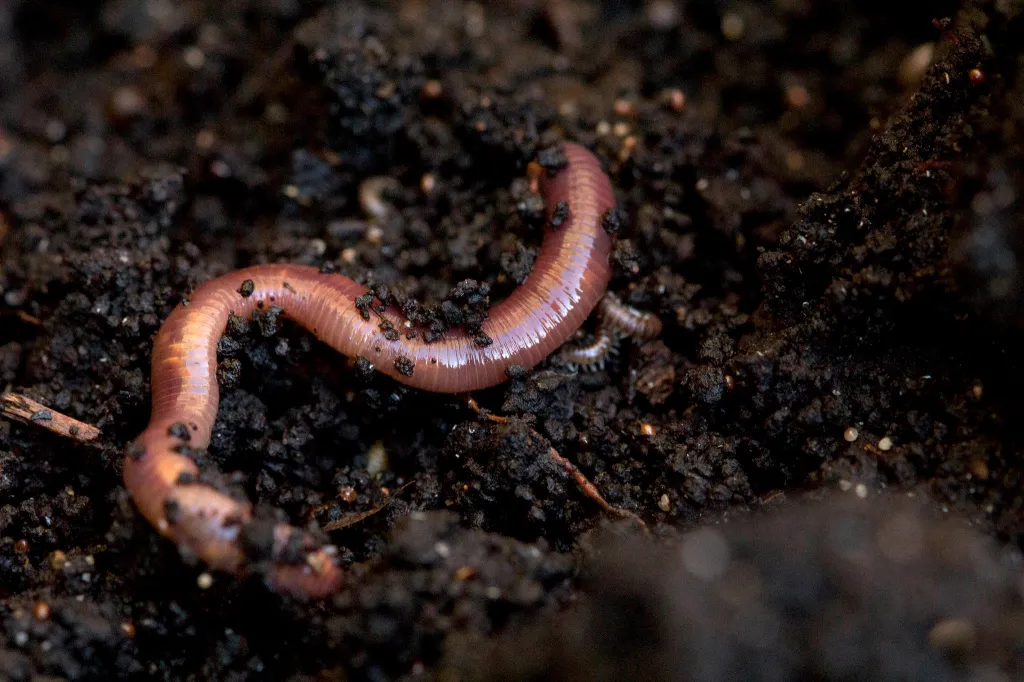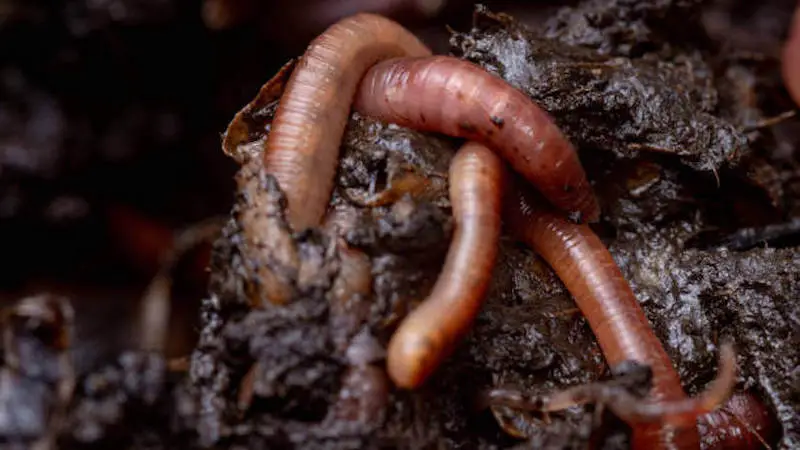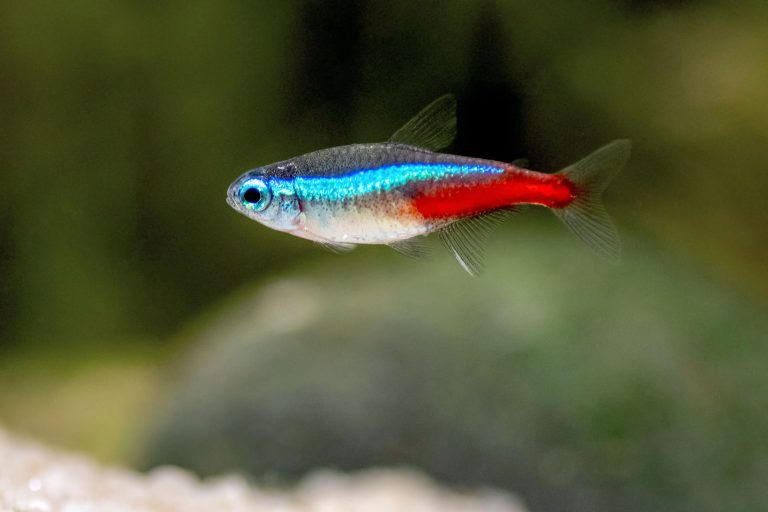Why Do Earthworms Die When Salt Is Sprinkled On Them?
Earthworms die when salt is sprinkled on them because salt dehydrates their bodies, disrupting their osmoregulatory system. This leads to water loss and ultimately death.
Exposure to salt causes the withdrawal of water from the earthworm’s body through a process called osmosis, which disrupts the balance of fluids within their cells. As a result, the earthworm becomes dehydrated and unable to function properly, leading to its eventual demise.
Earthworms are fascinating creatures that play a vital role in maintaining the health of soil ecosystems. These cylindrical, segmented invertebrates are known for their beneficial effects on soil structure and nutrient cycling. However, when salt is sprinkled on them, their seemingly robust bodies succumb to the harmful effects. This article will delve into the reasons behind the demise of earthworms when exposed to salt and shed light on the implications of this phenomenon. Understanding why earthworms are unable to survive salt exposure not only highlights the sensitivity of their osmoregulatory system but also emphasizes the importance of mindful practices to protect these invaluable soil engineers.
Uncovering The Mystery: Earthworms And Salt
Earthworms, just like any other organism, have specific adaptations and requirements for survival. One key factor is their protective skin, which acts as a barrier against external factors. Earthworms also rely on moisture for respiration, as they breathe through their skin. Salt, on the other hand, has dehydrating properties that can harm earthworms.
When salt is sprinkled on earthworms, it disrupts their osmotic balance. The excess salt draws out moisture from their bodies, leading to dehydration. As a result, earthworms lose their ability to respire effectively, as their skin becomes dry and less permeable. The lack of moisture makes it difficult for them to absorb oxygen, which ultimately leads to their demise.
Understanding the delicate balance of earthworm anatomy and the importance of skin and moisture in their survival helps shed light on why salt is detrimental to their well-being. So, next time you encounter earthworms, let’s make sure to be mindful of their needs and avoid exposing them to salt.

Earthworms’ Battle With Osmosis
Osmosis is a natural process that occurs when there is a concentration gradient across a semipermeable membrane. In simpler terms, it refers to the movement of water molecules from an area of low solute concentration to an area of high solute concentration through a barrier. In the case of earthworms, osmosis plays a crucial role in maintaining cellular balance and hydration levels.
Earthworms rely on osmosis to regulate their body fluids and maintain internal pressure. Their skin acts as a semipermeable membrane, allowing the exchange of gases, water, and other substances with the surrounding environment. When a high concentration of salt is sprinkled on earthworms, it disrupts the osmotic balance. The salt creates a hypertonic environment, drawing water out of the cells via osmosis. This excessive water loss leads to dehydration and ultimately results in the death of earthworms.
When salt comes into contact with earthworms, it causes water to diffuse out of their cells. This leads to shrinkage and distortion of the cellular structure. The loss of water also affects the functioning of vital organs, such as the circulatory and digestive systems, which rely on proper hydration to function efficiently. The disruption of cellular balance and the subsequent damage to essential organ systems ultimately leads to the demise of earthworms when salt is sprinkled on them.
Earthworms’ Fatal Attraction To Salt
Earthworms play a vital role in our ecosystem, breaking down organic matter and improving soil health. However, these resilient creatures have a fatal attraction to salt, which can disrupt their delicate moisture balance and ultimately lead to their demise.
Earthworms thrive in environments with a fine balance of moisture. Their natural habitat provides the necessary humidity and moisture levels for their survival. Unfortunately, when salt is sprinkled on earthworms, it interferes with this equilibrium.
The presence of salt on an earthworm’s skin draws water out of their body through a process called osmosis. This leads to dehydration and negatively impacts their life functions. Earthworms immediately react to the salt’s effects, displaying erratic behavior such as wriggling and contorting their bodies in an attempt to escape the saline environment.
The excessive loss of internal moisture results in their eventual death, as they are unable to replenish the lost water and maintain their vital functions. This highlights the importance of protecting earthworms and being aware of the effects certain substances, such as salt, can have on their delicate ecosystem.
Why Do Earthworms Die When Salt Is Sprinkled On Them?
When salt is sprinkled on earthworms, they experience a physiological shock that ultimately leads to their death. The reason behind this lies in the osmotic balance of the earthworm’s body, which is finely tuned to survive in a specific environment. Earthworms have a high concentration of fluid inside their bodies, while the concentration of salt in their external environment is usually much lower. When salt is applied, it disrupts this delicate balance and causes water to be drawn out of the earthworm’s cells through a process called osmosis. This dehydration leads to a series of detrimental effects, including cellular damage and organ failure.
The death process post-salt exposure can be further broken down into several stages:
| Stage | Description |
|---|---|
| Dehydration | The salt causes water to be drawn out of the earthworm’s cells, leading to dehydration. |
| Cellular damage | The dehydrated cells become damaged, impacting the earthworm’s overall physiological functions. |
| Organ failure | The cumulative effect of cellular damage results in organ failure, leading to the earthworm’s death. |
Despite their amazing ability to adapt to various environmental conditions, earthworms are unable to protect themselves from the harmful effects of salt. Their evolutionary adaptations have primarily focused on surviving in moist and nutrient-rich soil environments, where salt concentrations are typically low. As a result, when exposed to salt, earthworms are unable to activate any defense mechanisms to counteract the detrimental effects.
The Role Of Salt In Soil Ecology
Salt plays a crucial role in soil ecology, affecting the population of earthworms. The composition of soil and the presence of salt in natural soils are closely related. Salt levels have a significant influence on earthworm populations in the wild. High salt content in soil can have adverse effects on earthworms, leading to their mortality. When salt is sprinkled on earthworms, it disrupts their osmoregulation process, which is essential for maintaining fluid balance in their bodies. This disturbance ultimately leads to their death.
Understanding the ecological implications of salt on earthworms is vital for maintaining soil health and biodiversity. Earthworms play a crucial role in soil structure formation and nutrient cycling. They break down organic matter, improving soil fertility and enhancing water infiltration. Therefore, any disturbance in their population can have far-reaching consequences for the overall ecosystem. Efforts must be made to create a balanced salt concentration in the soil to ensure the survival and well-being of earthworms and maintain healthy soil ecology.
Protecting Our Wormy Companions
Sprinkling salt on earthworms can be fatal for these wriggly creatures. High salt concentration disrupts their osmotic balance, causing dehydration and ultimately leading to their demise. It’s important to protect our worm companions and avoid subjecting them to harm.
Best Practices For Maintaining A Healthy Environment For Earthworms
Earthworms play a vital role in maintaining soil health and fertility, making it crucial for gardeners and farmers to ensure their well-being. One common threat to earthworms is salt exposure. Excessive salt can disrupt the osmotic balance within an earthworm’s body, leading to dehydration and death. To protect these beneficial creatures, it is important to adopt strategies that minimize harmful salt exposure in gardens and farms.
One effective approach is to limit the use of salty products, such as salt-based fertilizers and herbicides. Instead, opt for organic alternatives that do not pose harm to earthworms. Additionally, regularly monitoring soil salinity levels can help identify areas of concern and allow for appropriate actions to be taken.
Moreover, incorporating organic matter into the soil helps create a favorable environment for earthworms by providing them with food and improving soil structure. By maintaining optimal conditions and minimizing salt exposure, gardeners and farmers can foster a healthy habitat for earthworms, allowing them to thrive and continue their important role in agriculture and soil health.
Strategies For Minimizing Harmful Salt Exposure In Gardens And Farms
| Strategies | Description |
|---|---|
| Avoid excessive use of salt-based products | Opt for organic alternatives that do not pose harm to earthworms. |
| Regularly monitor soil salinity levels | Identify areas of concern and take appropriate actions. |
| Incorporate organic matter into the soil | Provides food and improves soil structure for earthworms. |
The Importance Of Earthworms In Agriculture And Soil Health
Earthworms are a crucial component of a healthy ecosystem. They enhance soil fertility, promote nutrient cycling, and improve soil structure. By burrowing through the soil, they create channels for water and air, allowing plant roots to access essential resources. Earthworm activities also help break down organic matter, releasing nutrients that are essential for plant growth. Furthermore, the casts or droppings left behind by earthworms are rich in beneficial microorganisms, which further contribute to soil health.
Safe Alternatives To Salt For Gardeners
Discover safe alternatives to salt for gardeners to protect earthworms. Salt sprinkled on them can lead to their death. Learn why and explore better options for your garden.
Non-toxic Methods For Deterring Pests And Enhancing Soil
Creating a worm-friendly environment in your garden is crucial for their health and longevity. Earthworms play a vital role in maintaining soil health and promoting plant growth. Instead of using salt, which is harmful to worms, there are several safe alternatives you can consider:
- Organic pest control products: Using organic sprays or repellents made with natural ingredients like neem oil and garlic can effectively deter pests without harming earthworms.
- Companion planting: Certain plants, such as marigolds and lavender, act as natural pest deterrents. By planting these alongside your vegetables or flowers, you can reduce the need for chemical pesticides.
- Mulching and composting: Applying a layer of organic mulch or compost to your garden beds can help improve soil fertility and structure, creating an environment that earthworms thrive in.
- Avoiding chemical fertilizers: Synthetic fertilizers can be harmful to earthworms. Opt for organic fertilizers, such as compost tea or worm castings, to nourish your plants without endangering the worm population.
By implementing these non-toxic methods, you can ensure a healthier garden ecosystem while preserving the well-being of earthworms.
Frequently Asked Questions On Why Do Earthworms Die When Salt Is Sprinkled On Them?
What Happens If We Sprinkle Common Salt On An Earthworm?
Sprinkling common salt on an earthworm can harm or even kill it. The salt draws out water from the worm’s body through osmosis, causing dehydration and ultimately damaging its cells.
Why Do Earthworms Die When Oil Is Poured On Its Body?
Oil poured on earthworms suffocates them by blocking their pores and inhibiting oxygen exchange, leading to death.
Can Earthworms Tolerate Salt?
Yes, earthworms can tolerate salt. They have a special adaptation that allows them to survive in salty soil.
Can Worms Feel Pain?
Worms do not have a nervous system, so they do not feel pain like humans or animals do.
Conclusion
Earthworms die when salt is sprinkled on them due to the high concentration of sodium chloride in salt. This disrupts the osmotic balance in the worms’ bodies, causing dehydration and ultimately leading to their death. It is crucial to be aware of the harmful effects of salt on earthworms, as they play a vital role in maintaining healthy soil ecosystems.
Proper care and understanding of earthworms’ sensitivity to salt can help protect these beneficial creatures.







